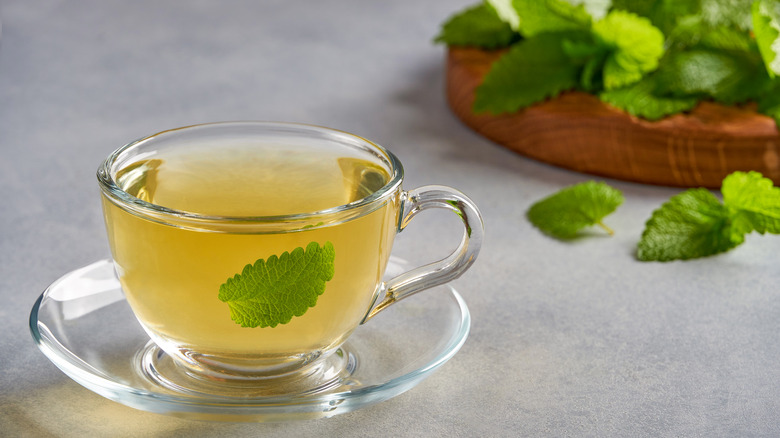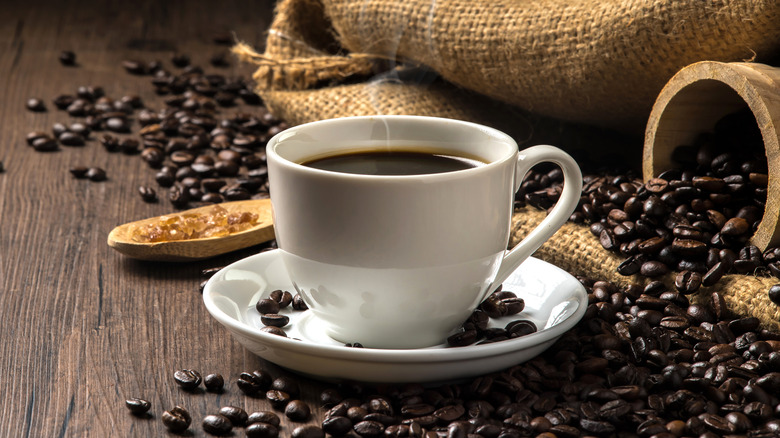Caffeine In Green Tea Vs. Coffee: How Much Is Too Much?
Coffee and tea meet at the intersection of caffeinated beverages, and despite being entirely different, they get compared a lot because of this common denominator. Both have their own nutritional facts as well as their own scale of caffeine levels, and they're often pitted against each other to see which beverage is better for you. Your body can experience interesting changes when coffee is consumed every day – it's even believed that coffee can impact your hormones – and tea is even one drink that's recommended for people who want to cut back on coffee.
What most people worry about when it comes to coffee and tea are caffeine levels, but caffeine is also present in other drinks like soda. The caffeine level in each drink simply varies, and this can even be different within a type of drink. Some coffees have different caffeine levels than others, and espresso is entirely different, too. According to the Mayo Clinic, one shot of espresso, for example, typically contains 64 milligrams of caffeine, while a standard cup of brewed coffee contains 96 milligrams.
Likewise, the Mayo Clinic offers data for various teas. The average cup of black tea contains 47 milligrams of caffeine while the same sized cup of green tea contains just 28 milligrams of caffeine. But what does all of this mean, and how much caffeine is too much? Is green tea better than coffee simply because it contains less caffeine?
This is the truth regarding coffee's caffeine levels in relation to your health
Green tea has a number of health benefits that have made it a staple drink and medical aid for centuries. According to WebMD, green tea contains just 2 to 4% caffeine, and it's full of antioxidants, which can keep you healthy. Green tea also contains polyphenols, which help with swelling, inflammation, cartilage maintenance, and joint degeneration prevention. This makes it a great drink to boost overall health for people of all ages.
While green tea contains amazing nutrients and polyphenols, it also contains caffeine. According to LiveStrong, "Caffeine is classified as a stimulant and is most commonly used to increase alertness, concentration, and athletic performance." Moreover, caffeine acts as a diuretic and makes people urinate more frequently. However, caffeine can also work wonders. "Caffeine can also be isolated and is used in medications for headaches, appetite, pain relief and asthma," LiveStrong explained.
Caffeine, like both green tea and coffee, has its own health benefits, but like anything in life, it should be consumed in moderation. In total, you shouldn't cross the 400 milligrams threshold of caffeine per day. Too much caffeine can make you restless, irritated, and even prone to heart issues. Because one cup of coffee only contains 64 milligrams of coffee on average, coffee is no villain, and can be enjoyed daily guilt-free. Green tea, too, is fine to consume regularly, or to supplement coffee with its lower levels.

